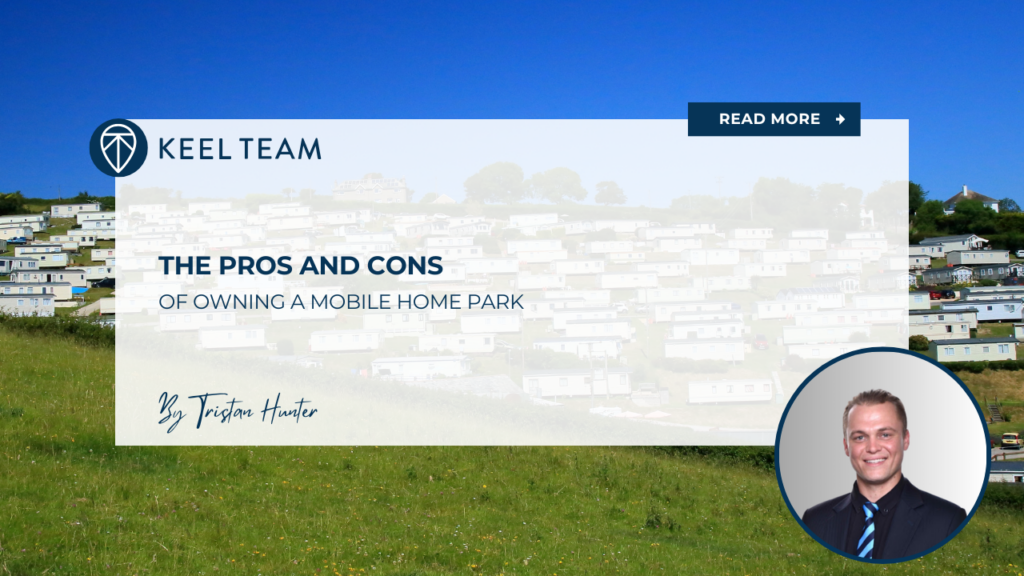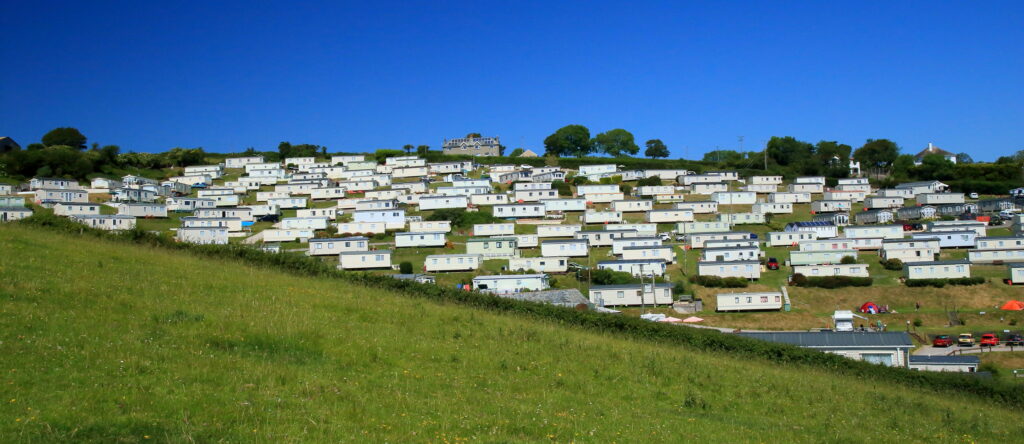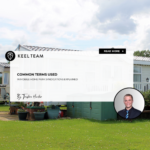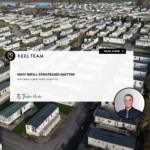The Pros and Cons of Owning a Mobile Home Park
-
 Tristan Hunter - Investor Relations
Tristan Hunter - Investor Relations

Owning a mobile home park can offer a unique mix of potential cash flow, community impact, and long-term stability. But like any real estate asset, mobile home parks also come with challenges that investors must understand before diving in. In this article, we’ll explore the common pros and cons of owning a mobile home park, helping you assess whether it may align with your investment strategy.
Potential Pros of Owning a Mobile Home Park
1. Lower Tenant Turnover
Mobile home park tenants typically own their homes and rent the lot. Moving a mobile home can be expensive and logistically complex, which often results in longer tenant stays. For an owner, this may mean fewer vacancies and more consistent lot rent collections.
Long-term tenants can also lead to a more stable community, which can be beneficial for operations and reputation.
2. Attractive Cash Flow Potential
Compared to many other real estate asset classes, mobile home parks can offer strong cash-on-cash returns. The cost to maintain lots is generally lower than managing apartment units, especially if tenants own their homes.
Owners may also reduce capital expenditures over time, particularly in stabilized mobile home parks. Of course, this depends heavily on the condition of the infrastructure, tenant base, and management strategy.
3. Limited Supply and Growing Demand
Zoning laws often restrict the development of new mobile home parks. At the same time, demand for affordable housing continues to grow in many parts of the country. This supply-demand imbalance may create long-term tailwinds for mobile home park owners.
Because of this dynamic, some mobile home park owners believe they hold a hard-to-replace asset in a high-demand segment.
Download our FREE eBook on the Top 20 things to know BEFORE investing in mobile home parks!
4. Diverse Value-Add Opportunities
Many mobile home parks—especially older, under-managed ones—offer room for improvement. By upgrading infrastructure, improving collections, adjusting below-market rents, or bringing in new homes, an owner may be able to increase the net operating income over time.
That said, value-add projects also come with risk and require thoughtful planning, skilled contractors, and capital reserves.
5. Recession-Resilient Resident Base
In past economic downturns, some mobile home park owners observed that their communities maintained relatively strong occupancy. While no asset is truly recession-proof, affordable housing tends to remain essential, no matter the market cycle.
Mobile home parks may attract working-class residents who value cost-effective housing that still offers space, privacy, and independence.
Potential Cons of Owning a Mobile Home Park
1. Management Can Be Intensive
While some mobile home park owners operate with minimal staff, managing a mobile home park often requires hands-on effort. Tasks may include lot rent collections, dealing with tenant disputes, overseeing maintenance, enforcing rules, and managing contractors.
Hiring a third-party management company is one option, but quality operators can be difficult to find, and typically come at a cost.
2. Infrastructure Risk and Hidden Costs
Many mobile home parks have aging infrastructure, such as water lines, sewer systems, electrical connections, and roads. These systems can fail without warning, potentially leading to unexpected expenses and tenant dissatisfaction.
Due diligence is critical. A mobile home park that appears profitable on paper may come with deferred maintenance or compliance issues that reduce profitability.
3. Zoning and Regulatory Complexity
Mobile home parks are often subject to local zoning restrictions, licensing requirements, and state-specific tenant protection laws. Navigating these rules can be time-consuming and may limit your ability to make changes, such as adding lots or converting usage.
It’s important to consult legal and zoning professionals to avoid surprises post-acquisition.
4. Tenant Quality Can Vary
Although many residents take pride in their homes and contribute positively to their communities, some mobile home parks may attract tenants with inconsistent payment histories or difficult behavior. Tenant screening and community standards play a big role in shaping the park’s atmosphere.
Managing tenant dynamics is part of the job, and it isn’t always easy.
5. Financing May Be More Complex
Financing a mobile home park can differ from traditional multifamily properties. Not all lenders are familiar with this asset class, especially if the mobile home park includes private utilities or has a small number of lots.
Loan terms, down payments, and interest rates can vary based on the mobile home park’s size, condition, and location.

Weighing the Trade-Offs
As with any investment, owning a mobile home park comes with trade-offs. The asset class has a reputation for strong cash flow potential, affordable housing demand, and tenant stability, but it’s far from passive.
Investors who succeed in this space tend to have a clear strategy, strong operational systems, and a willingness to get into the weeds. Mobile home parks are a relationship-driven business, and your ability to work with tenants, city officials, and contractors can significantly impact the outcome.
Final Thoughts
Owning a mobile home park may offer compelling opportunities, but it also requires a clear-eyed understanding of the challenges. For the right investor, mobile home parks can be a rewarding part of a long-term real estate portfolio, both financially and personally.
Before buying, take the time to understand the market, evaluate the mobile home park thoroughly, and build a plan for management and maintenance. While there are no guarantees in real estate, preparation and due diligence can make all the difference.
Are you looking for MORE information? Book a 1-on-1 consultation with Andrew Keel to discuss:
- A mobile home park deal review
- Due diligence questions
- How to raise capital from investors
- Mistakes to avoid, and more!
Disclaimer:
The information provided is for informational purposes only and is not investment advice or a guarantee of any kind. We do not guarantee profitability. Make investment decisions based on your research and consult registered financial and legal professionals. We are not registered financial or legal professionals and do not provide personalized investment recommendations.

Tristan Hunter - Investor Relations
View The Previous or Next Post
Subscribe Below 👇





